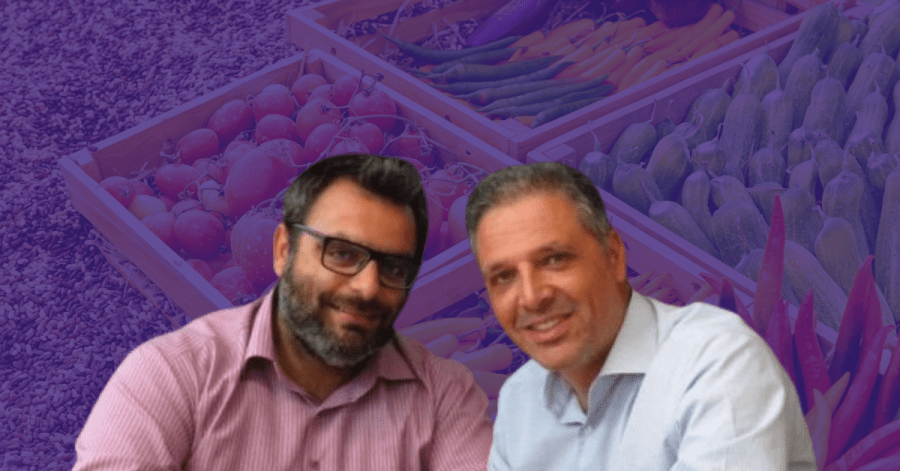- Wikifarmer, the Greek direct farmer-to-business agricultural marketplace, raises a €5M seed round led by Point Nine, the European VC for SaaS startups and B2B marketplaces.
- The investment comes less than 9 months after the seed round (of an undisclosed amount) of the startup that was supported by Metavallon Venture Capital, and a number of global investors.
- Wikifarmer will use the funding to hire new talent, expand across Europe, enhance its farming knowledge library, and develop new product features such as digital transactions, and financial and logistic solutions for both buyers and sellers.
With a mission to democratize agriculture, Wikifarmer aims to create the leading B2B marketplace for agricultural products in Europe and become the go-to source of free agricultural information. The platform enables farmers to sell directly to companies, without the need for intermediaries, thus benefitting from higher margins.
“Our vision is to restructure the supply chain, digitize processes, and ultimately generate more value for all parties involved. This round of funding will allow us to accelerate our product development in order to offer 360° coverage of agricultural transactions,” Ilias Sousis, co-founder and CEO of Wikifarmer explains.
“I think that the reaction of both the buyers and sellers was positively unexpected and led us to traction with a strong MoM growth (+20%) for most of 2022. As a result, we decided that it was the right time for us to scale our model to more countries in Europe, and invest more in our product and technology so that we become a major player in global agriculture in the next two years,” Ilias Sousis shares for The Recursive.
On a mission to match digitalization with agricultural science
Founded by Wikifarmer’s co-founders Ilias Sousis, Peter Sagos, and Harry Parianos, Wikifarmer was founded to help solve the negative impact caused by outdated farming practices on the environment, food security, and the financial sustainability of farmers.
The founding team is a metaphor for Wikifarmer’s mission to combine digitization with agricultural science. The CEO of the company, Ilias Sousis, is a senior ex-Googler, while the Chief Science Officer, Petros Sagos, is an agronomist.
In a previous interview with The Recursive, Ilias Sousis explained that Wikifarmer aims to resolve two main challenges in agriculture at a regional and global level. Since a lot of farmers still cultivate their fields with methods that they have learned from their grandfathers, their yield is lower than it could be. That is why Wikifarmer is offering free content on the best practices of agriculture. Secondly, farming commerce is still one of the few industries that has not been digitized and the value chain is still ruled by multiple intermediary parties. That is why the platform aims to help farmers come closer to the end buyer and extract more value out of the supply chain.
What’s in for sellers and buyers of agricultural products?
Wikifarmer has developed an entire ecosystem of products for farmers. It features a Wikifarmer Library, which has turned into the biggest open library for farming worldwide, and a Wikifarmer MarketPlace, which connects the local and global agricultural markets.
The startup offers sellers two important benefits: positioning their products to a wide base of potential buyers, and ensuring transparent, secure, and safe transactions. Farmers, therefore, receive equitable value and are able to produce more efficiently, sell directly, and increase their profitability by up to 300%, according to the founders. On the other hand, the platform enables buyers to compare prices from different producers and traders of agricultural products, find a quote for shipping, and complete their purchases securely. The platform is free for all B2B buyers, such as wholesalers, larger hotels, restaurant chains, small and medium size retailers, or food processing units. Instead, Wikifarmer charges sellers an 8% commission fee to support administrative and technology costs.
Traction and future plans
“B2B marketplaces, which bring mostly analog industries online, are a core area of focus for us at Point Nine. We have been partnering with one or two new B2B marketplaces every year, for the last 7 years, including REKKI (restaurants) in 2016, Container xChange (containers) and Laserhub (metal parts) in 2017, cargo.one (air cargo) in 2018, MerXu (industrial products) in 2019, Rooser (seafood) in 2020, and now Wikifarmer. The food industry is gigantic and presents its own challenges, but we’ve been impressed by Ilias’s and Peter’s unique approach to digitizing the industry”, Louis Coppey, Partner at Point Nine, highlights.
Today, Wikifarmer has more than 16M unique users worldwide. It has helped around 1K businesses to decrease costs by 30% by enabling farmers to sell their products without intermediaries. The platform has 19K different agricultural products listed.
The startup, which is part of the portfolio of Endeavor Greece, has been officially named the “Wikipedia of Farming” by the United Nations and is available in 16 languages.







